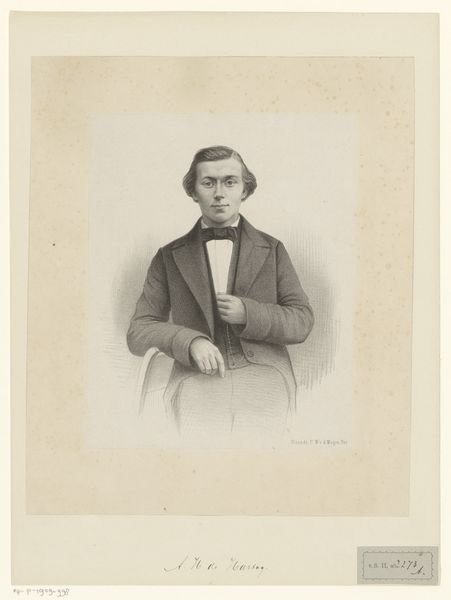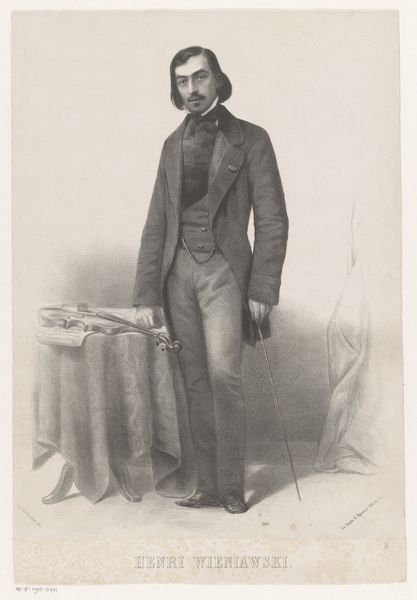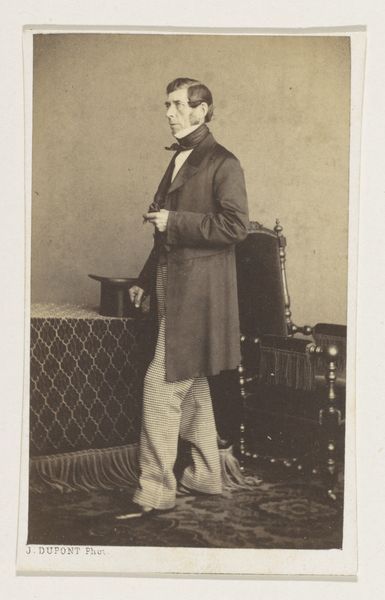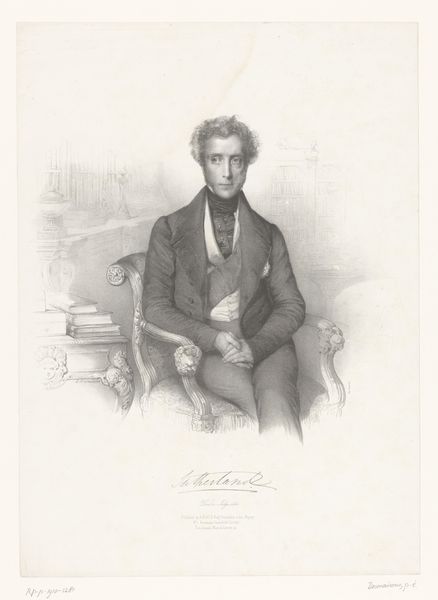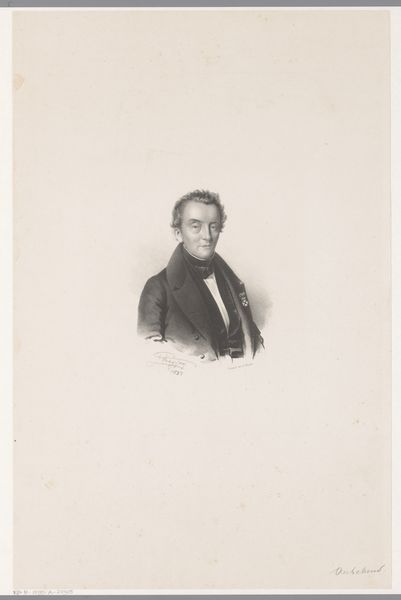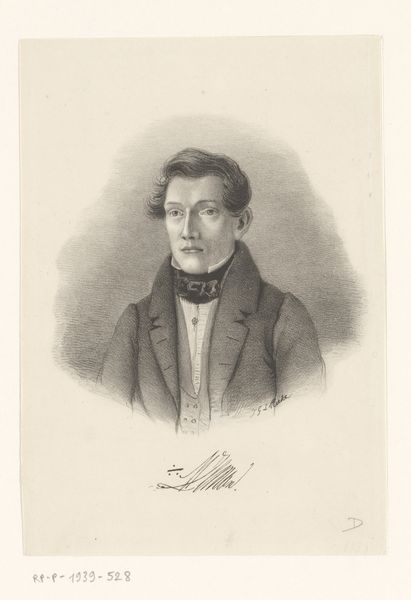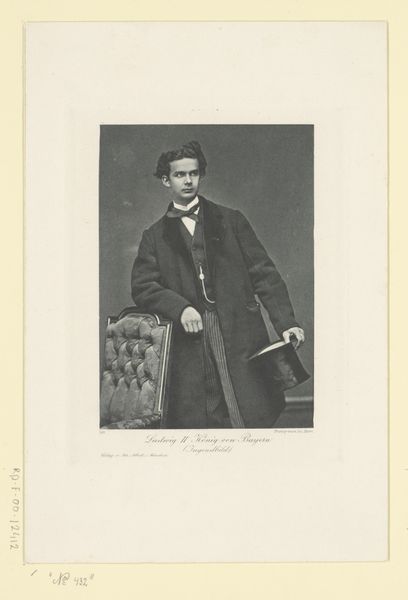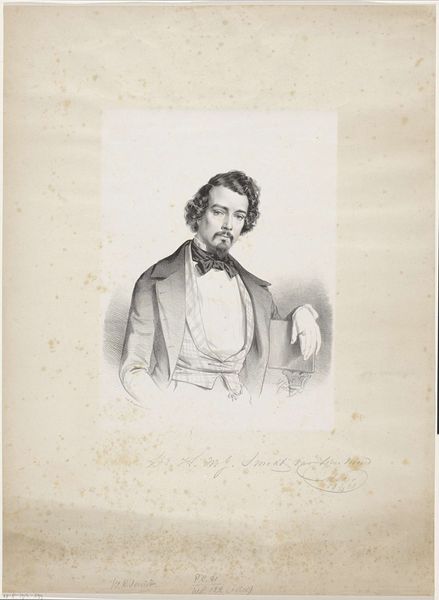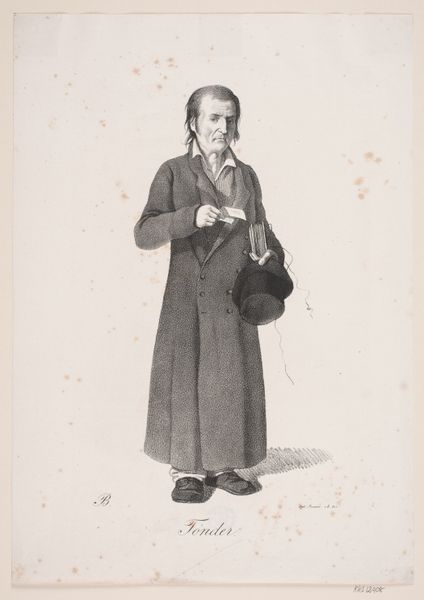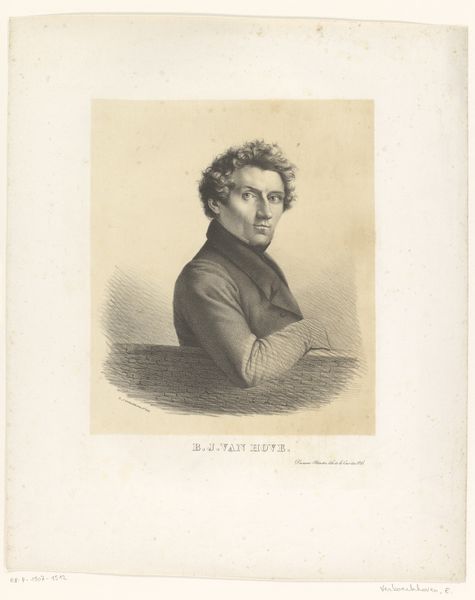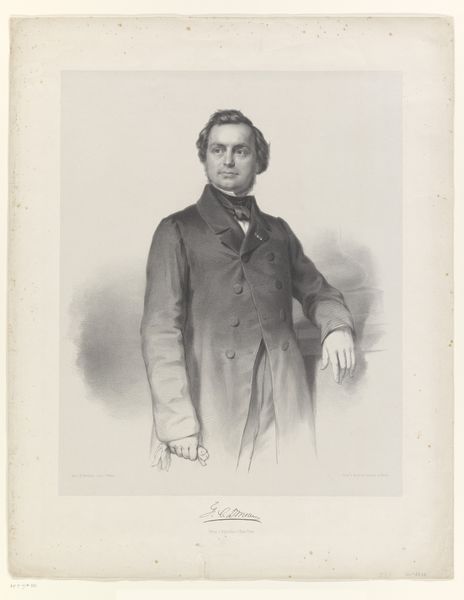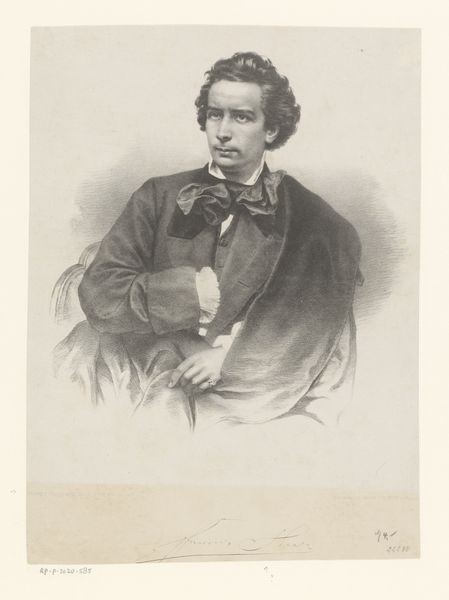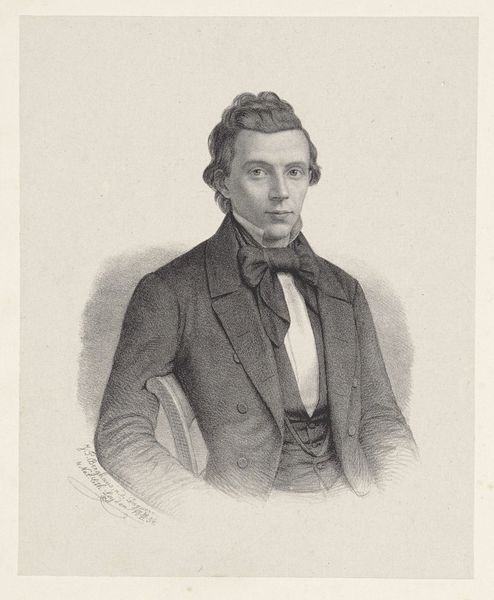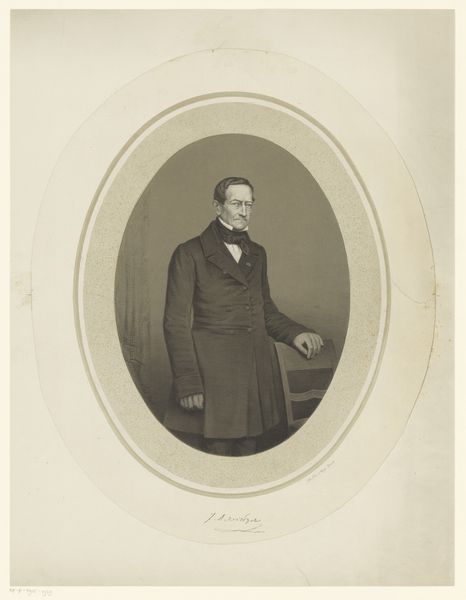
drawing, paper, ink
#
portrait
#
drawing
#
neoclacissism
#
charcoal drawing
#
paper
#
archive photography
#
historical photography
#
ink
#
19th century
#
history-painting
Dimensions: height 515 mm, width 350 mm
Copyright: Rijks Museum: Open Domain
This portrait of Johan Rudolf Thorbecke was printed anonymously, with the technique of lithography. Lithography, developed in the late 18th century, is based on the principle that oil and water don't mix. The artist would draw on a flat stone or metal plate with a greasy crayon, then apply ink, which would adhere only to the drawn areas. The printmaker then presses the image onto paper, revealing the final artwork. In contrast to painting or sculpture, lithography allowed for the relatively quick reproduction of images. This made art more accessible to a wider audience, and fueled the growth of print culture in the 19th century. The medium itself democratized image-making, because lithography was reliant on industrialized processes. Consider how the sharp lines and tonal range achieved through lithography contribute to the depiction of Thorbecke's likeness. From his stern gaze to the intricate details of his clothing, every aspect is rendered with precision, reflecting the values of the rising middle class and the era's fascination with realism. The print represents a shift in the definition of art, and is a testament to the evolving relationship between art, technology, and society.
Comments
No comments
Be the first to comment and join the conversation on the ultimate creative platform.
